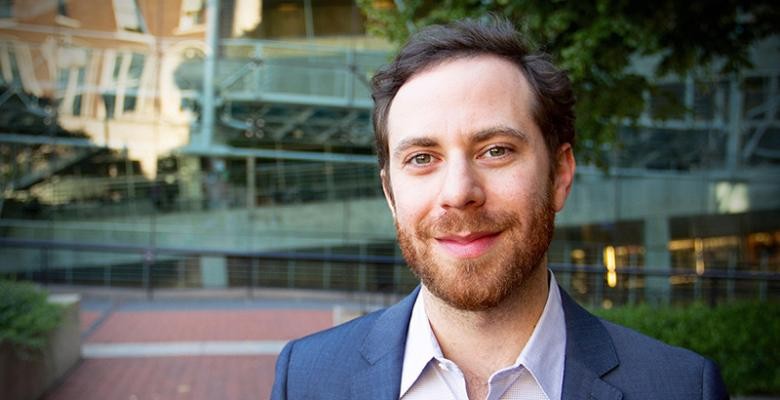Keeping Secrets: Finding the Link Between Trust and Well-Being

Michael Slepian is a keeper of secrets, tens of thousands of them. Not his own, however. Rather, he safeguards others' secrets.
Slepian is an assistant professor at Columbia Business School whose research is focused on secrecy and trust. In one study, he surveyed 1,000 individuals about what they keep to themselves. The findings identified 38 categories of secrets—professional ambition, drug use or addiction, mental health, sexual orientation and, no surprise, infidelity. The average person keeps 13 secrets, he found, five of which they had never divulged before answering his questionnaire.
Slepian is focused on more than just the number and variety of secrets that people keep. He is most interested in the consequences and effects of hiding something. Secrets can become a burden, he said. Just thinking about them can affect a person’s well-being—mood, relationships, job performance—and can lead to social isolation if people feel they’re not being authentic with those around them.
“The problem with having a secret is not concealment,” said Slepian. “It’s that you have to think about it, you have to live with it. Even when you don’t have to hide it, it can hurt you.”
Not surprisingly, secrecy can be difficult to study. People may not be forthcoming in face-to-face interviews. A laboratory experiment would require creating a secret and looking at what happens when one person hides it from another, Slepian said. That, he points out, is very different from the reality of concealing something for five years.
Anonymous surveys via the internet seemed a better option for his research. The categories from the first 1,000 responses to his questionnaire formed 38 questions for the next 1,000 individuals, such as, have you ever engaged in something illegal, harmed yourself, or committed sexual infidelity? Have you cheated or done something improper at work or school, or lied to get a job or into a school, concealed your sexual orientation/gender, or kept a belief [such as religious or political views, prejudice] secret?
Participants were asked whether they kept these experiences or thoughts from everyone, from some people, or if they are not now or never were a secret.
Slepian earned his Ph.D. in experimental psychology at Tufts and came to Columbia in 2014 as a post-doctoral scholar in the Business School’s Management Division. He joined the faculty in 2016.
“People keep secrets in all walks of life. They keep them from their friends, their family, their romantic partners. They keep them at home and they keep them at work," he said. Secrecy is a factor in many workplace situations: hiring, promotion decisions, salaries and product development, to name a few.
At Columbia, Slepian teaches a course on negotiation, a process that often involves deciding how much and what to tell the other side. In one of his papers, written with Malia Mason, an associate professor at the Business School whose research is focused on social judgments, decision-making and mind-wandering, he put forth a new theory.
Their study, titled “The Experience of Secrecy,” reveals that people think about their secrets—their minds wander to them—far more frequently than they find themselves in situations where they must conceal those secrets. It is the mind-wandering that has the greatest impact on well-being. “It changes the way we psychologists think about secrets,” said Slepian.
His interest in secrets began as a graduate student, when he was studying how people use concrete experiences to understand abstract concepts. Secrecy was among the topics he explored. “For something that’s so common, so consequential, we don’t know much about the effects of secrecy,” he said.
Slepian’s work has led him to do research on trust, investigating how people choose confidants. His studies find that people think about their secrets less frequently after telling someone–often a trusted third party who can offer advice and guidance. Sometimes there’s a good reason to keep a secret, such as not hurting someone, and it helps to be reminded of that, Slepian said.
In selecting a confidant, people look for someone who is empathetic, assertive and will go out of their way to help, he said. “The good news,” he said, “is that you can change how you think about your secrets to improve your well-being.”